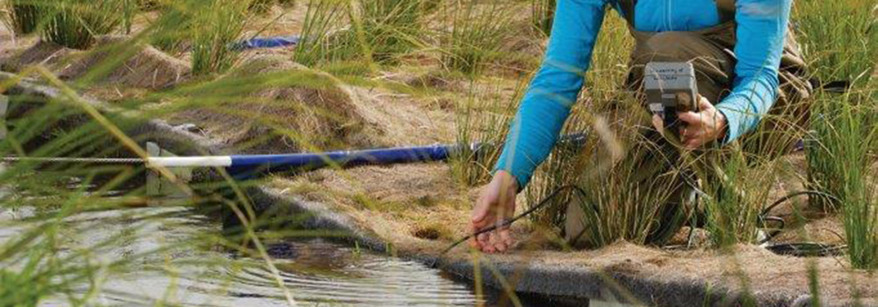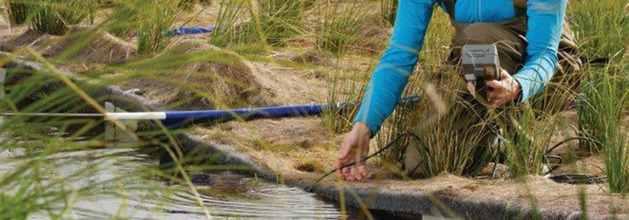We are leading and supporting a range of scientific monitoring and research work to improve understanding about freshwater sources, use, availability, quality and how these can best be sustainably managed.
Good decision making is supported through improving knowledge of our water resources.

Freshwater monitoring
Environmental monitoring to measure changes in our region's land, air and water quality over time is a useful tool for detecting environmental problems, informing solutions and checking whether restoration efforts are making a difference. It's also a task that regional councils are directed to do under the Resource Management Act.
We use various sampling methods and scientific indicators to actively measure and monitor freshwater quality, quantity and ecological health throughout the Bay of Plenty.
This includes regular recording of E.coli, blue-green algae and nutrient (nitrogen and phosphorous) levels, clarity and turbidity, macro-invertibrates (aquatic insects, snails, shrimps and worms), water temperature, water levels, flow, rainfall; and the use of Mataurangi Māori alongside our western science.
Swimming water monitoring
We collect water samples from more than 70 popular coastal, river and lake recreation sites around the Bay of Plenty, weekly or bi-weekly throughout the summer swim season (24 October 2018 - 21 March 2019).
The samples are checked for faecal contamination (E. coli or Enterococci bacteria) and/or for toxin-forming algae (cyanobacteria).
Our monitoring information is supplied to Toi Te Ora Public Health who are responsible for issuing health warnings if unsafe levels of bacteria or toxic algae are detected.
Regardless of health warning status:
You should avoid swimming for two to three days after heavy or prolonged rain. This is because the water can be contaminated by farm and urban run-off which takes some time to settle out or flush away.
Avoid swimming near potential sources of contamination such as flocks of birds, storm water or waste water outlets.
If you suspect an algal bloom is present, don't swim or take part in an activity that may result in accidental consumption or exposure to water affected by algal blooms.


